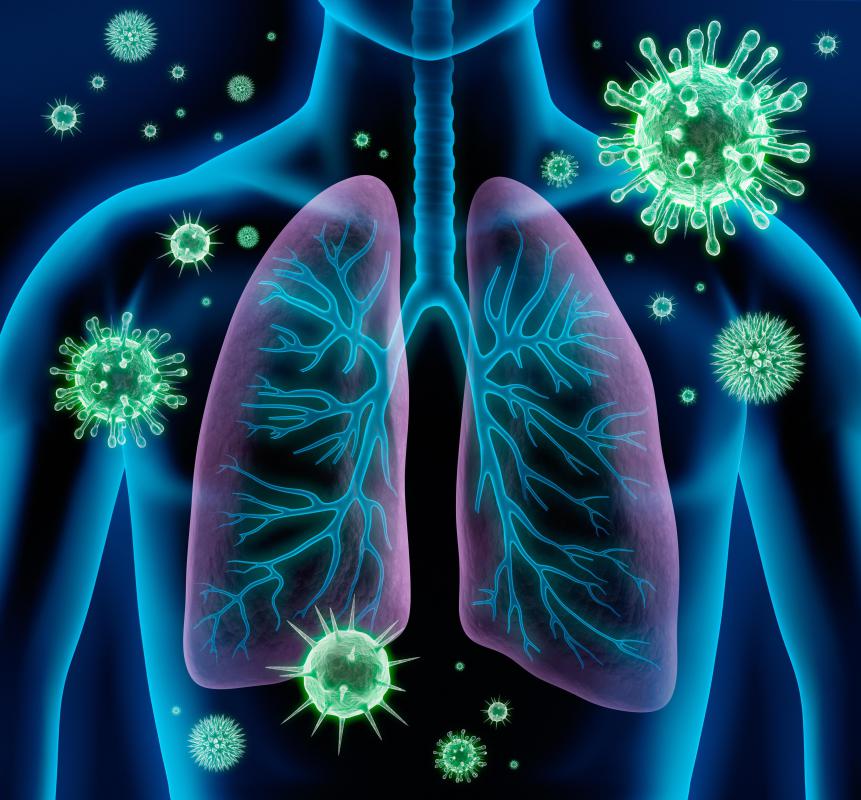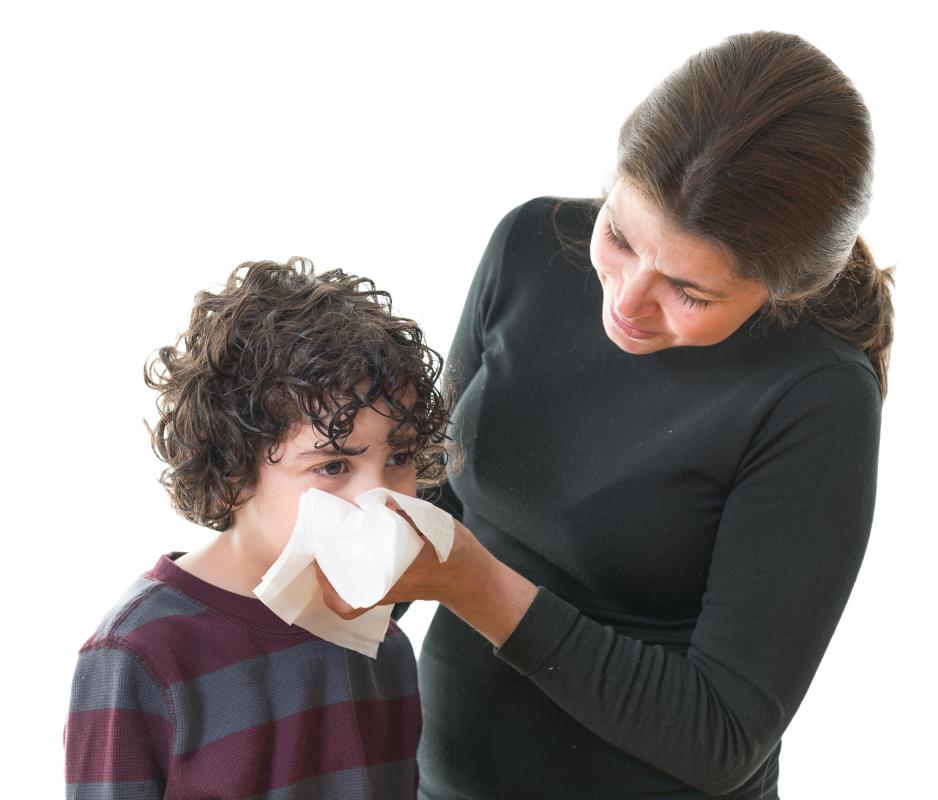At TheHealthBoard, we're committed to delivering accurate, trustworthy information. Our expert-authored content is rigorously fact-checked and sourced from credible authorities. Discover how we uphold the highest standards in providing you with reliable knowledge.
What is the Cytokine Storm?
People often think of external microbes as their worst enemy during an outbreak of influenza or bronchitis, but the body's own immune system is potentially more lethal. When the body detects foreign microorganisms indicating an infection, it might respond by over-protecting the site of infection. It may race so many antibodies to the infection site that they collect in a cytokine storm. When the infection is in the lungs, for example, this response can potentially block airways and result in suffocation. Medical researchers have identified the causes and stages of the reaction and are working on treatments to weaken an overactive immune response.
At all times, white blood cells circulate in the bloodstream and are the first to sense if a virus or bacteria has infiltrated the body. Immediately, other immune cells, including T-cells and macrophages, are sent to attack the infection. During this stage, a person's immunity functions properly, and immune cells attack the microbes so they do not get too strong a foothold.

For reasons that are not completely understood, too many immune cells can be sent to the infection site. This happens when a particular type of molecule in the body, known as cytokines, activate the immune cells at the infection site and cause more immune cells to flood the site of infection. This propagates what is referred to as a cytokine storm, where far too many immune cells are caught in an endless loop of calling more and more immune cells to fight the infection. The reaction ends up inflaming the tissue surrounding the infection.

When the infection is in the lungs, this severe inflammation can cause permanent damage. A prolonged cytokine storm will eventually shut down breathing completely. The airways get clogged, and cells no longer properly absorb oxygen. This is what makes the reaction so deadly in certain epidemic strains, such as bird flu. Even bronchitis, other varieties of influenza, pneumonia, sepsis, and possibly rheumatoid arthritis are susceptible to triggering a cytokine storm.

Of course, flu vaccines are usually effective at preventing the flu during its peak season, but they are no guarantee, especially when flu strains mutate after the vaccine has been manufactured. Therefore, researchers are pursuing other methods of preventing this extreme immune response by bioengineering a drug that could slow the snowball effect of antibodies. They hope to force the cytokines to recirculate in the bloodstream, rather than pool in the area of the infection. Experts predict that a major influenza pandemic could kill millions of people worldwide, as it has done in centuries past.
AS FEATURED ON:
AS FEATURED ON:















Discussion Comments
Prostate cancer kills 70-80 percent of patients from cachexia. Why? because the "death signals" including those the cytokines TNFa, Il-6, IL-8 and others from the necrotized/dead prostatic tissue. When tissue dies, the death signal cytokines send messages to healthy good cells to shut down and end their lives by way of apoptosis and senescence. This not the same as metastasis, such as seeding by pleomorphic mycoplasma, yeasts and fungal mold germination and DNA mutation resulting in a tumor.
Would colloidal silver and mms,a.k.a. chlorine dioxide,trigger a cytokine storm in a healthy immune system that has been infected with swine flu.
I think taking proline- rich polypeptides in spray form into the mouth will help prevent a cytokine storm. These peptides are information peptides and modulate the immune system if over active or underactive. They can regulate the TH1 and Th2.
The new vaccine contains for the first time ever an adjuvant, "something that allows the immune system to respond with higher levels of effectiveness." This is the formula to cause an over-reactive immune response, a cytokine storm. Shouldn't we be avoiding stimulating the immune system?
What happens if infections are in other parts of the body other than lungs, eg. brain? Large numbers of immune cells summoned due to cytokine storm will gather around the area of infection (a.k.a.. brain)and block the supply of blood to the brain?
Could a nettie pot help prevent a cytokine storm?
Can High Dose Interleukin treatments cause a cytokine storm (IL2)? I have had 3 treatments and each time my lungs have filled with fluid. The first time my breathing was inhibited almost 70%. My doctor is constantly x raying.
Post your comments